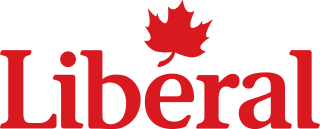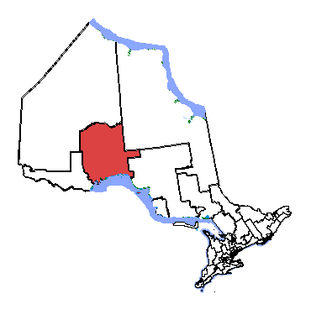| Date | March 21–23, 1980 (cancelled) |
|---|---|
| Convention | Winnipeg, Manitoba |
| Resigning leader | Pierre Trudeau |
| Won by | convention cancelled |
A Liberal Party of Canada leadership convention was to have been held in early 1980 as a result of Pierre Trudeau's November 21, 1979 announcement that he would resign as Liberal leader as soon as his successor was chosen. The announcement came several months after Trudeau's government was defeated by the Progressive Conservatives and Joe Clark. The party executive called a convention to be held in Winnipeg in late March 1980 as per Trudeau's requested timeline. [1] [2]

The Liberal Party of Canada is the oldest and longest-serving governing political party in Canada. The Liberals form the current government, elected in 2015. The party has dominated federal politics for much of Canada's history, holding power for almost 69 years in the 20th century—more than any other party in a developed country—and as a result, it is sometimes referred to as Canada's "natural governing party".

Joseph Philippe Pierre Yves Elliott Trudeau, often referred to by the initials PET, was a Canadian politician who served as the 15th prime minister of Canada. He was the third longest-serving prime minister in Canadian history, having served for 15 years, 164 days.
Former Minister of Supply and Services and Matapédia—Matane MP Pierre de Bané, High River, Alberta shop owner Madeline Hombert, and London, Ontario housewife Denise Seguin were the only declared candidates. [3]
Minister of Supply and Services was an office in the Cabinet of Canada from 1969 to 1996. On July 12, 1996, office of the Minister of Supply and Services and the office of the Minister of Public Works were abolished and replaced with the office of Minister of Public Works and Government Services.

Haute-Gaspésie—La Mitis—Matane—Matapédia was a federal electoral district in Quebec, Canada, that has been represented in the House of Commons of Canada since 1979. It has the lowest percentage of visible minorities among all Canadian electoral districts (0.3%).
Pierre De Bané, was a Canadian senator. He was the first person of Middle Eastern descent to be elected to the House of Commons of Canada in Matane and next Matapédia—Matane, and was a member of the Canadian Cabinet.
Other rumoured candidates included: [3] [4]
- Bob Andras, MP for Thunder Bay—Nipigon, former Minister of Manpower and Immigration (1972-1976) and President of the Treasury Board (1976-1978).
- Lloyd Axworthy, MP for Winnipeg—Fort Garry.
- Jean Chrétien, MP for Saint-Maurice, former Minister of National Revenue (1968), Minister of Indian Affairs and Northern Development (1968-1974), President of the Treasury Board (1974-1976), Minister of Industry, Trade and Commerce (1976-1977), and Minister of Finance (1977-1979).
- Herb Gray, MP for Windsor West, former Minister of National Revenue (1970-1972) and Minister of Consumer and Corporate Affairs (1972-1976).
- Donald Stovel Macdonald, former MP for Rosedale (1962-1978), former Minister of National Defence (1970-1972), Minister of Energy, Mines and Resources (1972-1975), and Minister of Finance (1975-1977). Macdonald was considered by many to be the front runner.
Robert Knight (Bob) Andras, was a Canadian politician. He represented the electoral districts of Port Arthur from 1965 to 1979, and Thunder Bay—Nipigon from 1979 to 1980, in the House of Commons of Canada as a member of the Liberal Party of Canada.

Thunder Bay—Superior North is a federal electoral district in Ontario, Canada, that has been represented in the House of Commons of Canada since 1976.
Minister of Manpower and Immigration was a former position in the Cabinet of Canada from 1966 to 1977. The position was created after the Minister of Citizenship and Immigration was dissolved in 1966. In 1977, this position was abolished and replaced with the Minister of Employment and Immigration.
Former Minister of Finance John Turner, who had run in the 1968 leadership election that elected Trudeau, was seen as a likely candidate until his surprise December 10, 1979 announcement that he would not be a candidate. [4]

The Minister of Finance is the Minister of the Crown in the Canadian Cabinet who is responsible each year for presenting the federal government's budget. It is one of the most important positions in the Cabinet.

John Napier Wyndham Turner is a Canadian lawyer and politician who served as the 17th prime minister of Canada, in office from June 30 to September 17, 1984.
The leadership election was cancelled, however, after Clark's minority government was defeated in the House of Commons on December 13, 1979, by a non-confidence vote, triggering a federal election. The party executive and caucus cancelled the convention after persuading Trudeau to rescind his resignation and lead the party into the February 18, 1980 federal election, which saw the Liberals return to office with a majority government.
A minority government, or minority cabinet or minority parliament, is a cabinet formed in a parliamentary system when a political party or coalition of parties does not have a majority of overall seats in the parliament. It is sworn into office, with or without the formal support of other parties, to enable a government to be formed. Under such a government, legislation can only be passed with the support of enough other members of the legislature to provide a majority, encouraging multi-partisanship. In bicameral parliaments, the term relates to the situation in chamber whose confidence is considered most crucial to the continuance in office of the government.


